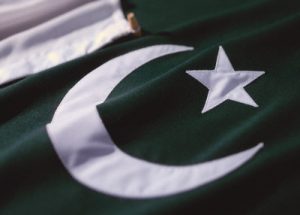On November 1, Pakistan announced its decision to grant Gilgit-Baltistan, an autonomous region it administers in the country’s far north, the status of a full province. The region is also claimed by India as part of Jammu and Kashmir. Since a 1949 ceasefire agreement following the first war between India and Pakistan soon after their independence in 1947, Pakistan has administered the part of Jammu and Kashmir it gained control over following the war as two autonomous provinces, Gilgit-Baltistan being one and “Azad Jammu and Kashmir” being the other.
In 2009, Pakistan issued the Gilgit-Baltistan (Empowerment and Self-Governance) Order through which Gilgit-Baltistan, formerly under the direct control of Islamabad, was granted autonomy and the provision of a legislative assembly. The Gilgit-Baltistan legislative assembly held elections in 2015; it will see new elections on the 15th of this month. However, the region has no representation in the country’s federal political structures, the lower and upper houses of Pakistan’s parliament. That will change once the region is accorded the status of a full province in the country’s constitution.
Pakistan’s announcement confirms something that has been periodically discussed by analysts and Pakistan’s ruling party and the military since August 2019, when India revoked the special autonomous status of the erstwhile Indian state of Jammu and Kashmir and carved out two centrally administered territories: an eponymous Jammu and Kashmir union territory, and Ladakh. Last week, India also changed land laws in Jammu and Kashmir that will allow non-residents to buy land in the union territory, something that was previously prohibited under Article 35A of the Indian constitution, which was scrapped last August along with Article 370. Pakistan “categorically rejected” this move, alleging that it was to alter “the demographic structure” in way that Kashmiris became a minority in the region.
India maintains that Pakistan’s administration of Gilgit-Baltistan, and those parts of Kashmir under its control, is illegal. While the erstwhile princely state of Jammu and Kashmir (of which Gilgit-Baltistan was a part) chose to remain independent of both India and Pakistan soon after their creation following the end of British rule in August 1947, the Maharaja of Jammu and Kashmir, Hari Singh, of the Dogra dynasty, changed his mind two months later, signing an Instrument of Accession in October 1947 that made his kingdom part of India.
Reacting to Pakistan’s announcement, Indian foreign ministry spokesperson Anurag Srivastava reiterated this history, going on to add that it “firmly rejects” Islamabad’s decision. “Instead of seeking to alter the status of these Indian territories, we call upon Pakistan to immediately vacate all areas under its illegal occupation,” Srivastava said. A month after India’s decisions on Jammu and Kashmir last year, External Affairs Minister S. Jaishankar had noted “PoK [Pakistan-occupied Kashmir, India terminology for the parts of Kashmir Pakistan administers, including Gilgit-Baltistan] is part of India and we expect one day that we will have the physical jurisdiction over it.”
Pakistan, of course, has a different version of the story. As Prime Minister Imran Khan put it during his visit to Gilgit-Baltistan on November 1, “Pakistan is not fully aware of what happened here in 1947, that the people here fought a war for independence, defeated the Dogra rule and got their freedom, and then fought in Skardu and Baltistan and gained independence there the next year in 1948.” Khan’s version, of course, omits the fact that the “war of independence” was waged by Pakistan army irregulars and Pashtun armed tribesmen backed by it, effectively forcing the Jammu and Kashmir maharaja’s hand in joining his kingdom to India.
China also has significant stakes in the future of Gilgit-Baltistan, which is adjacent to its restive Xinjiang Uyghur Autonomous Region, in the form of infrastructure investments through the China-Pakistan Economic Corridor (CPEC), a flagship project of President Xi Jinping’s Belt and Road Initiative. In the CPEC conception, Pakistan’s port of Gwadar in the Arabian Sea will be linked to Kashgar in Xinjiang through a set of interlocking infrastructure projects. Gilgit-Baltistan forms the critical node in this plan.
But long before CPEC was flagged in 2015 during Xi’s visit to Pakistan, the People’s Liberation Army has maintained a military presence in the region. As an example, the Asia scholar Selig S. Harrison estimated in 2010 that the PLA had between 7,000 and 11,000 troops in the region. Many, including myself, have also argued that it was India’s increasingly tough rhetoric on Kashmir in general – and Gilgit-Baltistan in particular – since last August that may have provided China the opening it needed to start the military standoff in Ladakh that began in May of this year.
During his visit to Gilgit-Baltistan yesterday, Khan noted that the area “is the gateway to CPEC. The entire area will see unprecedented development.” Converting Gilgit-Baltistan into the fifth province of Pakistan will help safeguard China’s CPEC investments in the region.
Meanwhile, analysts – including The Diplomat’s Pakistan correspondent Umair Jamal – have argued that the status of Gilgit-Baltistan, as well as the upcoming elections there, could feed into Pakistan’s ongoing political crisis, and may give the opposition alliance ammunition as it negotiates its place in the country’s politics and seeks to wrest power away from the military-backed Khan government.
The official incorporation of Gilgit-Baltistan into Pakistan as full province will require an amendment to Pakistan’s constitution.

































